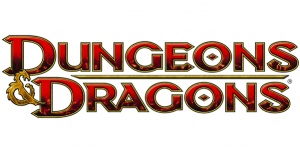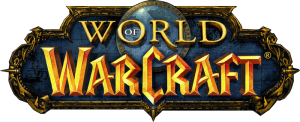MMORPGs
Massively Multiplayer Online Role-Playing Games (MMORPGs) are a genre of online role-playing games (RPGs) in which a large number of players, typically thousands, interact within an online environment. Players create fictional characters (or avatars), and then control that characters actions in the virtual environment. Typically the virtual world offers a lively environment in which a player can choose between a variety of activities. MMORPGs are different from single-player and small multi-player games by the large population of simultaneous players, and the world’s continued activity while players are not in-game. Another key characteristic of MMPORGs include customizable avatars that continue to evolve while the user is not in the virtual environment. World of Warcraft is a very well known and one of the most played MMORPGs.
Contents
History
Current MMORPGs are the result of many years of evolution. First coined in 1997, The origin of MMORPGs can be pointed back to the popular tabletop fantasy role-playing game “Dungeons & Dragons”.[1] Dungeons & Dragons involved assigning players a specific character, whose actions the player was in charge of. [2] Dungeons & Dragons influenced the creation of MUDs (Multi-User Dungeons), which were text-based role-playing games that allowed players to interact with each other through typing commands into the game interface. MUDs eventually developed into MMORPGs complete with graphics (ranging from 2-D to 3-D).
Types
MMORPGs can be grouped according to the method by which players pay for the game. “Pay-to-play” games require players to pay for the game itself, and then pay a monthly subscription fee for game play-time. Examples of pay-to-play games include World of Warcraft and Eve. “Free-to-play” games are games that do not require players to pay for either the game or their game play-time. Examples of free-to-play games include Runescape. Some free-to-play games have options to pay a monthly fee in exchange for more features, or cash shops for improved items. Other games simply require an initial purchase of the game, and then players can play the game without continued mandatory expense.
Players must then choose a realm:
- Player versus Player (PvP): Players play against other humans in a competitive environment.
- Player versus Environment (PvE): Players choose to play the environment, possibly with the cooperation of other humans.
- Roleplay (RP): Telling a story through an online environment
- Roleplay - PVP (RP-PVP): Using roleplaying with other people in the online environment
Appeal
- Achievement: includes advancement, analyzing game mechanics and competition
- Social: includes chatting and casual interactions, developing support relationships and teamwork
- Immersion: includes identity exploration, role-playing, avatar customization, and escapism
Ethics
It is not uncommon for players to spend more time in a virtual world than they spend working or doing any other real life activity, thus ethical and moral issues in MMORPGs will likely have a sizable impact on people’s everyday lives. A cult culture has developed over these games, leading to documentaries being based on this culture. Gustav Oqvist, a philosopher, accurately stated that “It seems obvious that acts in World of Warcraft carry moral value. If they did not, neither players nor Blizzard would care very much about the relations in the game, yet they do.” [3]
Social ethics
Social ethics in MMORPGs focuses mainly on player-player interactions. As in any social environment, MMORPGs must deal with cultural and personal disagreements between players. An ethical consideration that is more specific to the virtual environment is the ability for players to kill one another. With this ability comes the potentiality of ruthless griefing, trolling and other activities that antagonize others and negatively impact their in-game experience.
Economic ethics
Economic ethics in MMORPGs focuses on the ethical issues that may be encountered when players participate in the in-game economy. One such issue is the act of using real-world money to purchase in-game money, items or even high level characters. [4] These economic ethical issues can turn into social ethical issues when a social stigma is developed for both those who work for and those who purchase from real-money traders.
There are also economic ethics that deal with MMORPGs that have cash shops. In these games, players can often purchase items with real-world money to give their character upgrades and other advantages. This often divides the population between those who are willing to spend money and those who aren't. In some games this leads to a dichotomy of powerful paying players and weak non-paying players, where the latter no longer enjoys the game because of the advantages the former get. Some MMORPGs battle these problems by making their cash shop "fair." The items offered in these "fair" cash shops don't impact game play directly or don't offer any advantages over non-paying players.
Gold farming is another ethical issue that plagues MMPORGs. Other countries, like China and Vietnam, pay workers to play these video games as their full time in order to earn valuable tools and money that can be sold on the black market. These workers are paid very poorly and work in very poor conditions in order to create a large profit for their employers
Global ethics
Global ethics in MMORPGs includes activities such as scamming (ripping off other players), botting (using a computer program to play the game for you), and hacking (unauthorized access of another person’s account). Blizzard Entertainment's "World of Warcraft" relies on a [5] view when dealing with various ethical issues. This means that acts are morally right if they provide benefit and reduce harm for the greatest number of people. [6]
Research ethics
MMORPGs today are studied by a wide variety of research disciplines [7]:
Other than some mandatory basic ethical guidelines and professional codes, there is currently no code for virtual research practices. [13]
See Also
- Online Cheating
- Punishments in Virtual Environments
- Ethics in computer games
- Anonymous Behavior in Virtual Environments
References
- ↑ http://www.livinginternet.com/d/di_major.htm
- ↑ http://www.wizards.com/dnd/DnDArchives_FAQ.asp
- ↑ http://www.it.uu.se/grad/courses/etik07/Gustav.pdf
- ↑ http://gac.sagepub.com/content/3/2/225.short
- ↑ http://en.wikipedia.org/wiki/Utilitarianism utilitarian
- ↑ http://www.it.uu.se/grad/courses/etik07/Gustav.pdf
- ↑ http://www.it.uu.se/grad/courses/etik07/Gustav.pdf
- ↑ http://books.google.com/books?hl=en&lr=&id=z3VP7MYKqaIC&oi=fnd&pg=PA1&dq=bartle+2003+Designing+Virtual+Worlds&ots=FfqPHdopox&sig=dgPn587paavd6SFtSlm3ZP-QDUU#v=onepage&q&f=false][http://umu.diva-portal.org/smash/record.jsf?pid=diva2:144420
- ↑ http://dl.acm.org/citation.cfm?id=1124834
- ↑ http://dl.acm.org.proxy.lib.umich.edu/citation.cfm?id=1197417
- ↑ http://heinonline.org/HOL/LandingPage?collection=journals&handle=hein.journals/calr92&div=9&id=&page=
- ↑ http://dl2af5jf3e.scholar.serialssolutions.com.proxy.lib.umich.edu/?sid=google&auinit=RD&aulast=Balicer&atitle=Modeling+infectious+diseases+dissemination+through+online+role-playing+games&id=doi:10.1097/01.ede.0000254692.80550.60&title=Epidemiology+(Cambridge,+Mass.)&volume=18&issue=2&date=2007&spage=260&issn=1044-3983
- ↑ http://www.buzinkay.net/texte/online-research-ethics.pdf

